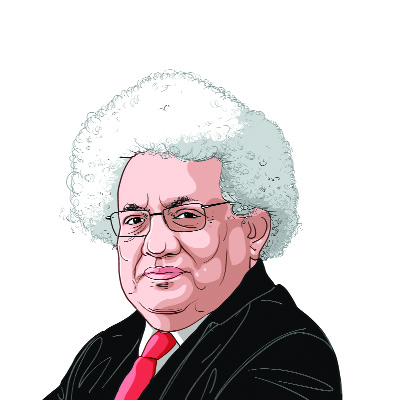Opinion The scared dragon
At least and at last,India has done one decent thing.
At least and at last,India has done one decent thing. It has refused to kowtow to the Chinese about the Nobel Prize ceremony for Liu Xiaobo. Given the company of nations who are not attending,India is well out of it. Those who are joining China in the boycott are some of the worst regimes in terms of their record on human rights. I know that many are members of the NAM but that just shows how ridiculous Indias continued association with NAM has become.
It is no surprise that Saudi Arabia,Cuba and Somalia will join the boycott. But the strange thing is how scared China is of international disapproval. One prize for one lonely dissident and the Chinese are so worried that they have organised a boycott. Indeed,there is also now the Confucius Prize which China has hastily invented. I doubt if it will be given next year unless another Chinese dissident gets a Nobel Prize.
I recall how in 1958,the USSR was similarly scared about Boris Pasternak getting the Nobel for his novel,Doctor Zhivago. We had our local CPI denouncing Pasternaks novel (without reading it of course). Many argued that the prize was an imperialist conspiracy by the Americans to befoul Soviet Union. Since Khrushchev had just himself denounced the horrific acts of Stalin,I do not know how anyone else could have done worse.
But then this is the nature of powerful autocratic regimes. They are scared of public opinion both at home and abroad. China pretends to be powerful but it is a brittle regime. If you read the reprint of the tapes of the Tiananmen proceedings,what you see is some very frightened old men of the Politburo who did not dare to go and argue with the students or even listen to them (Hu Yaobang did and suffered a purge). The Chinese regime was so frightened that it had to use tanks to quell a demonstration by unarmed students. If the Indian government did that,we would run out of tanks! What would have been controllable with water cannons or at the worst tear gas,required a military assault.
India has its own weak moments when it comes to dissidence. Thus,Maqbool Fida Husains forced exile and his harassment by Hindu fundamentalists is a disgrace and a cowardly act. Similarly,Salman Rushdies book was banned because people who had never read it decided to burn its copies and rioted. Thus,the Fundamental Rights Chapter of the Constitution notwithstanding,the Government of India banned the book,thus joining the most reactionary Muslim States.
The argument thats always made is about national sovereignty and questioning outside interference in the countrys internal affairs. In Chinas case,there is no doubt that people even in India must be arguing that China is right in incarcerating Liu Xiaobo. But India cannot be a party to any such behaviour. The Indian Constitution is a great document which affirms Indias deep-rooted commitment to the liberal democratic tradition. This tradition guided Indias unarmed independence struggle against the British. Indeed,Gandhiji and Nehru and much of the Congress leadership had imbibed these values when they had been in Britain. A fundamental critique of British Imperialism ever since the days of Dadabhai Naoroji was that the regime was un-British,that is untrue to its own core values.
It is embarrassing to many people to admit that the notion of human rights is a Western import. But little in Indias past prepares us for the notion of equal rights among all people. The tolerance of Ashoka or Akbar or the justice of Jahangir are all things to be proud of,but these depend on individual idiosyncracies. Indian society as a whole never admitted to equality; Shudras and Dalits were never equal in India nor did Muslim rulers follow the tenets of Islam and treat all as equal.
The truth is that the colonial experience enriched India in terms of imbibing liberal democratic values even as it exploited its economy. Over the sixty-three years of independence,India has overcome the negatives of colonialism and is now thriving as an economy. What it needs to preserve is the positive heritage of liberal democratic values. If India loses that,it will be just another frightened dictatorship like China.





